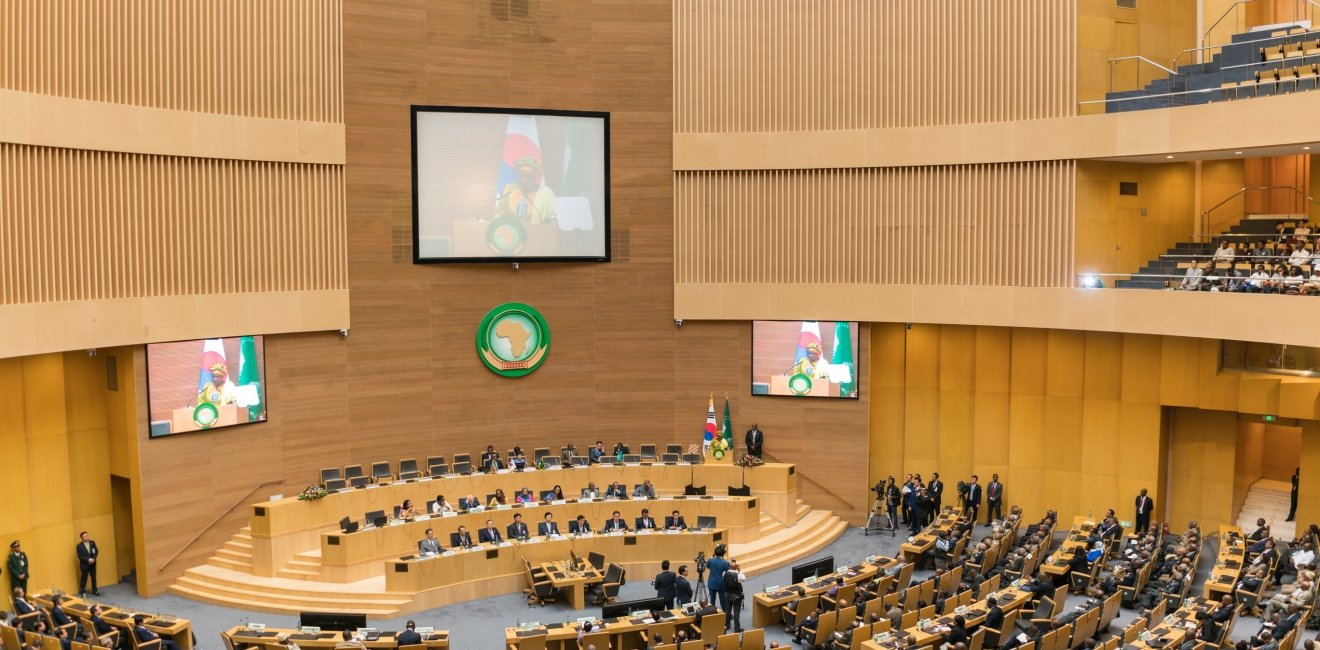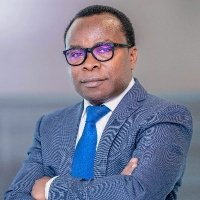Introduction
The African Union (AU) chairperson election took center stage when the Kenyan government supported Raila Odinga’s candidacy in July 2024. The nomination was surprising, as Odinga has long played the role of opposition candidate in Kenya. Most recently, Odinga faced off against President William Ruto in a contentious election that concluded with Odinga claiming election mismanagement and fraudulent vote counting. Since the election, Odinga played a prominent opposition role, leading “maandamano” (protests in Swahili) in July 2023 over the high cost of living and the Ruto government’s economic policies. Negotiations between the Odinga and Ruto camps led to reconciliations and the agreement on Odinga’s nomination for the AU chairperson position.
Odinga’s prominent position in East African and pan-African politics has increased the visibility of the AU chairperson elections in February 2025. While he faces competition from Mohamoud Ali Youssouf, foreign minister of Djibouti, and Richard Randriamandrato, former foreign minister of Madagascar, he has quickly racked up endorsements from multiple African countries with geographic representation across the continent. Odinga’s profile and the immediate visibility he brought to the process begs the question of what he will be able to accomplish if elected.
Since the establishment of the AU from the Organization of African Unity in 2002, the prominence of the AU chairperson position has been elevated with initiatives such as Agenda 2063 and with the increasingly central role of the organization in continental and global matters. In recent times, the role has become more visible through the AU and African states’ progressive inclusion in global forums such as becoming a permanent member of the Group of 20 (G20) in 2023. These forums provide an expanded platform and visibility for the AU chairperson. At the same time, the AU, as an institution, limits the chairperson’s ability to implement their agenda. The AU has been going through a multiyear reform process since 2016 but still struggles with financing its activities, and member states vary dramatically in political priorities and economic size. To be successful, the AU chairperson will have to seize opportunities presented by the international platforms where the AU has representation and continuously engage its member states while avoiding the institutional pitfalls.
The Role of the AU Commission Chairperson
Article 20 of the AU Constitutive Act establishes and defines the AU chairperson as the “Chief Executive Officer, legal representative of the AU, and the Commission’s Chief Accounting Officer” in the AU Commission Statutes. Officially, the chairperson oversees the Commission’s administration, “popularizing the AU’s objectives” and “coordinating with key stakeholders such as Member States, Development Partners, RECs [Regional Economic Communities], etc.” While this provides a broad framework for the position, the four individuals who have held the role since 2003 have been influential in defining it.
For example, two chairpersons, Alpha Oumar Konaré (Mali, 2003–08) and Nkosazana Dlamini-Zuma (South Africa, 2012–17), have profoundly impacted the chairperson’s role. As a former president, Konaré leveraged his strong personality and democratic, pan-African credentials to enhance the organization’s image. Chairperson Dlamini-Zuma, the first to assume the position from one of the continent’s major powers, championed the drafting and adoption of Agenda 2063. Her tenure significantly raised the office profile and sustained the diplomacy required to secure buy-in for Agenda 2063.
Occupants of the position often face significant challenges, including managing relations with member states, navigating the slow and cumbersome AU Commission bureaucracy, addressing inadequate financing of the Commission’s activities, and addressing the fallout of an evolving global multilateral landscape on the African continent. Additional challenges that the new leadership will confront include managing the resurgence of member states’ selective use of sovereignty in allowing AU’s involvement in crises within their borders, fostering cooperation between the AU and the United Nations in implementing peace operations and UNSC Resolution 2719, and advancing Africa’s emerging agency in global multilateral forums, particularly membership of the G20.
How the AU Commission Elections Will Work and What to Expect
The AU Commission leadership election is a multistep process that involves the call for nominations, submission of candidacies by member states, screening of candidates by the Executive Council’s Committee on Candidature, campaigning, debate among candidates, elections by the Assembly, and finally, announcement and confirmation of elected leaders. Currently, the candidates are set and are campaigning, with a recent debate held between candidates on December 13, 2024. Voting will occur at the 38th AU Summit in February 2025 in Addis Ababa, Ethiopia.
Though three candidates are contesting, Mahmoud Ali Youssouf (Djibouti) and Raila Odinga (Kenya) are the front-runners. Over the nomination and campaigning periods, candidates with slim chances of winning have dropped out and thrown their weight behind one of the leading candidates. This regularly results from bilateral deals or a realistic assessment of their chances, aiming to avoid wasting votes. The first instance of this occurred in the early phase of the process, during which Somalia’s candidate withdrew and supported Kenya’s Raila Odinga. Anil Gayan, a former minister of Mauritius who had earlier been approved to contend for the position of chair for his country, also dropped out in the latter part of 2024.
Additionally, the nature of domestic political influences could also affect the outcomes. This risk is particularly high for Raila Odinga, whose campaign is robustly supported and funded by his country with direct backing from the presidency. This has created a close connection between his campaign and domestic politics. While perhaps a black swan event, any significant changes in President Ruto’s presidency could have major implications for Odinga’s candidacy.
Opportunities and Challenges for the Next AU Commission Chairperson
Whoever wins is going to face opportunities and challenges. The ongoing reform process, designed to reduce fragmentation and duplication of efforts, inefficiencies, financial dependence on external partners, and improve coordination between the AU and regional economic communities, has had mixed results. In part, reforms have been ineffective due to a lack of political will from member states and the top-down approach of the reform process, which excluded staff of the Commission. The AU Commission chairperson will have to corral and gain influence with the member states and Commission staff to effect and sustain any meaningful internal change.
Similarly, fundamental to the AU are the continent’s regional economic communities, many of which are facing their own struggles to gain influence and regional buy-in. The Economic Community of West African States saw three members begin the process of withdrawing in 2024. Another example is the Intergovernmental Authority on Development in East Africa and the Horn of Africa, which is consistently criticized for lacking influence and the ability to mediate the numerous conflicts in its region.
At the same time, there are clear opportunities to lead on a unified agenda through new platforms such as the G20 and the broad rise in Africa’s agency on the global stage. For example, the G20 and the South African presidency in 2025 provide a clear platform for a unified African voice in one of the most prominent global forums. While the new AU Commission chairperson will come in after South Africa’s presidency has already started, there will be plenty of opportunities to coordinate and engage other African countries to advance the efficacy of the G20 engagement.
The AU’s finances are a consistent factor named in discussions of organizational ineffectiveness. However, the passage of Resolution 2719 in December 2023 allows AU-led peace operations to access UN-assessed contributions on a case-by-case basis. This would create more predictable and reliable funding for AU peace missions, a core part of the organization’s mandate. But the case-by-case nature requires diplomatic efforts with UN Security Council members. How to mobilize member states to contribute to the 25% envelope in deployments will also remain an issue. With calls for more missions in countries such as Sudan, the AU Commission chairperson will have the opportunity to shape what missions can utilize UN-assessed contributions, but it will require delicate diplomacy.
Finally, the African Continental Free Trade Area has made progress but still requires policy reforms and intra-African infrastructure development to realize its potential. The promise of the free trade agreement has captured the attention of the continent’s business leaders. Still, meeting implementation timelines and addressing emerging challenges requires more political will and activity. The new AU Commission chairperson will have the platform to advance these conversations.








